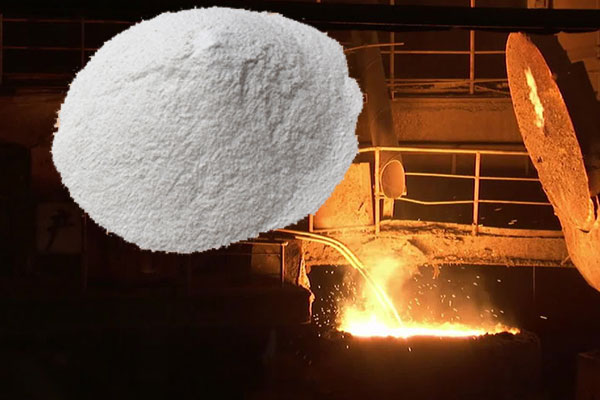Refining Agent for Aluminum Alloy mainly removes the hydrogen and floating oxidized slag inside the aluminum water and the high-temperature melt purification (refining) treatment of the aluminum alloy, and the basic function is to remove the internal inclusions and hydrogen in the high-temperature melt. This makes the aluminum liquid more pure and also has the effect of clearing the slag.
Some members of the aluminum refining fluxes are easy to decompose at high temperature, and the generated gas can react with hydrogen, and can strongly adsorb the slag and quickly escape from the melt to play a role in clearing the slag.
Refining Agent for Aluminum Alloy can be used in a variety of aluminum alloy melts, can be used for pure aluminum smelting, to refine and remove slag. It is only necessary to sprinkle the refining agent on the surface during use, and then the refining agent is quickly dissolved in the aluminum liquid and then thoroughly stirred. If a jet is used, it is better to use an inert gas to inject the refining agent, for example, nitrogen and argon can be selected.

The production method of aluminum alloy is to mix metal silicon as an additive into aluminum slag. In China, the world’s largest aluminum supplier, due to the decarbonization policy, the operation of coal-fired power plants is sluggish and there is a serious power shortage. Due to supply concerns, the international price of aluminum ingots is near a 13-year high.
The trading price of aluminum secondary alloys used in automobile engines and other items has further increased, setting the highest price for 9 consecutive months. Affected by China’s severe power shortage, the prices of aluminum and metallic silicon as raw materials have risen due to supply shortages, pushing up the prices of alloys. Due to the shortage of semiconductors, the production of automobiles has been reduced, and the demand for alloys has decreased accordingly, and the price increase has not been large. Alloy companies respond to tight supply and demand by reducing production capacity.
Judging from “AD12.1”, an index product of aluminum secondary alloys, the wholesale price in September was about 456,500 per ton. An increase of about 2,000 yen (0.4%) from the previous month. It has risen for 15 consecutive months and hit a record high.

